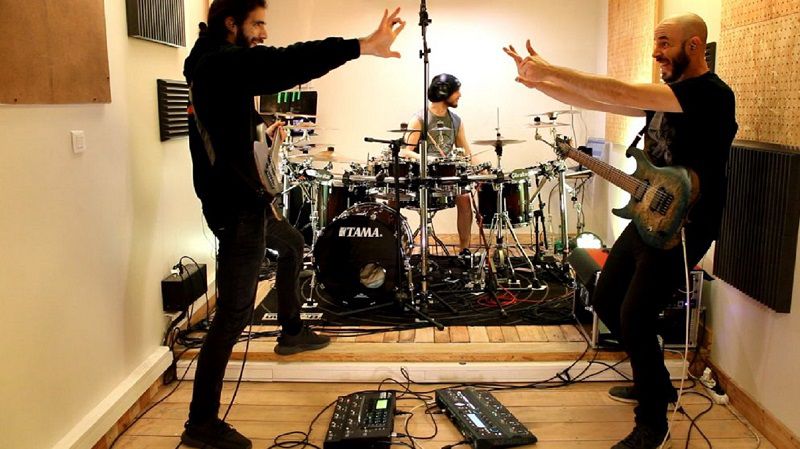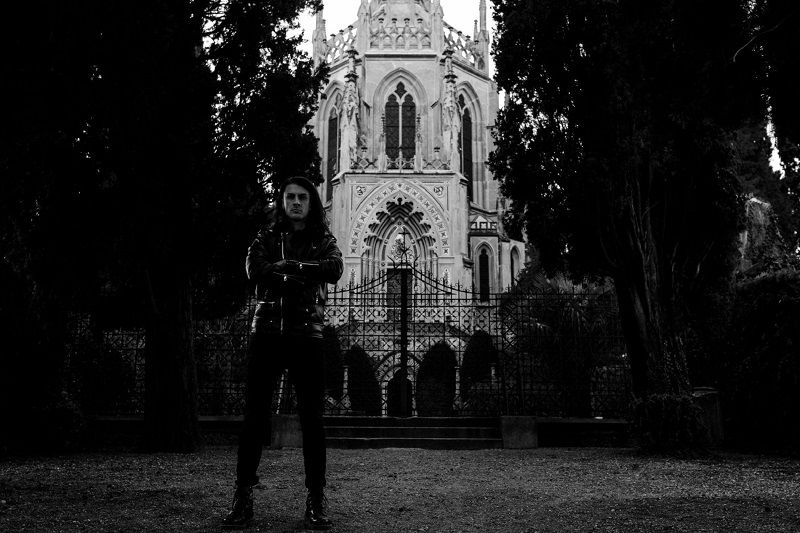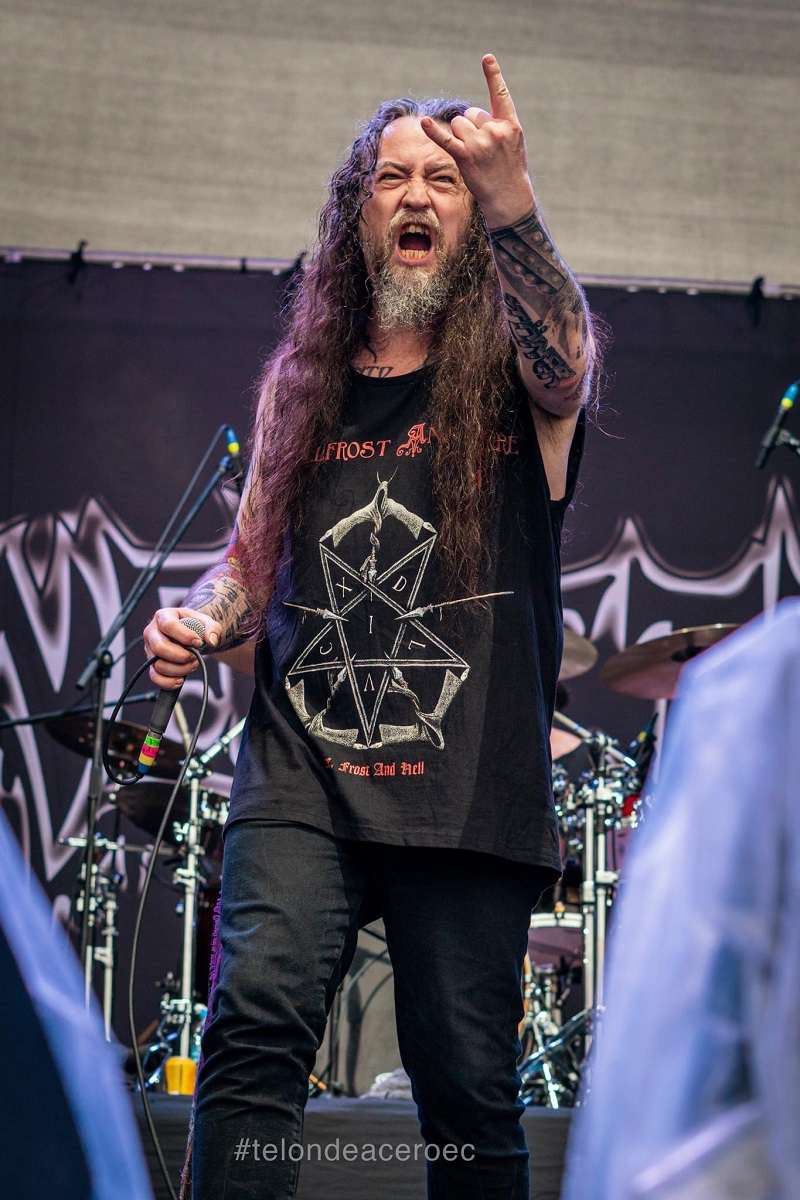Assassin Interview
7 min read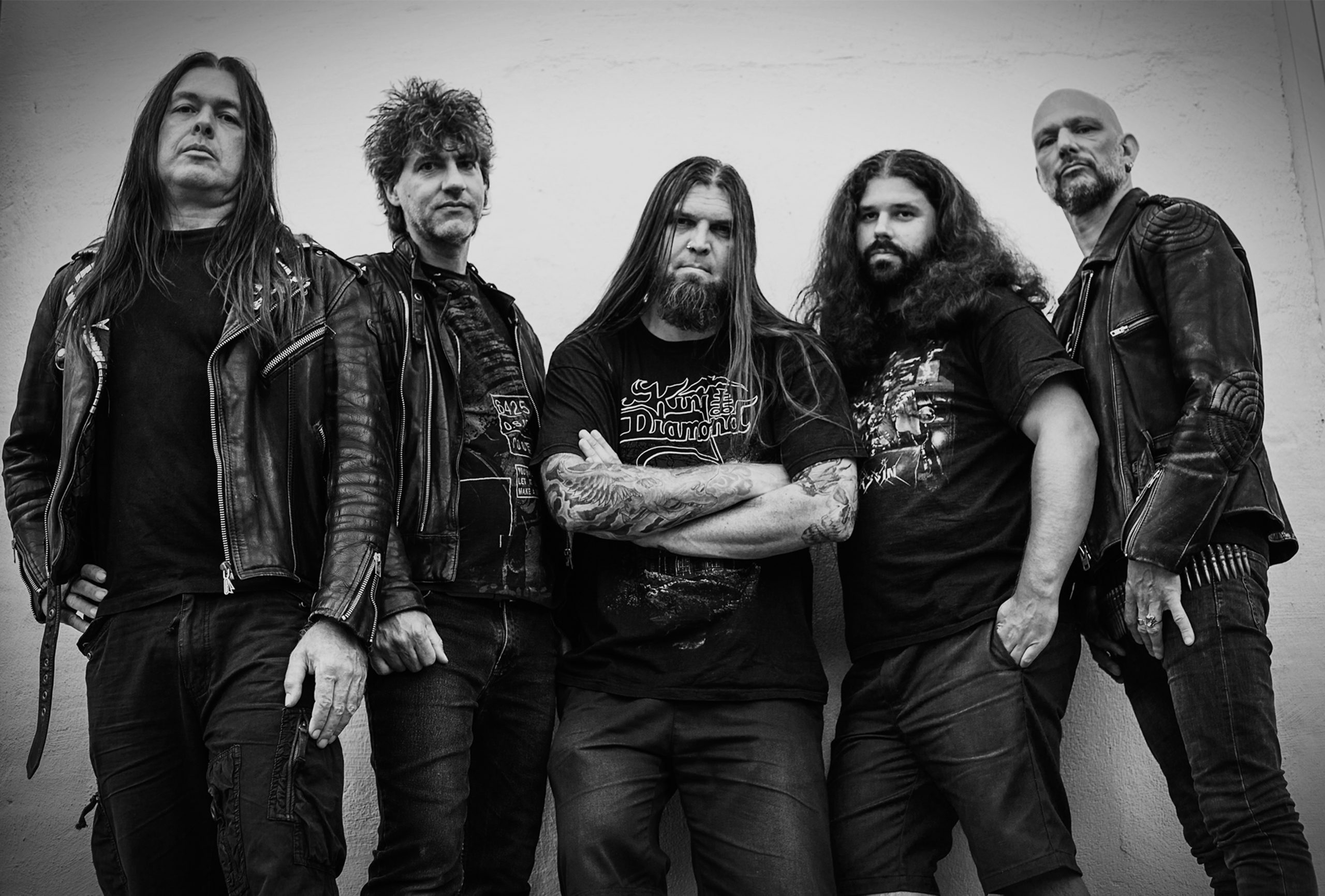
German Thrashers Unleash the ‘Bestia’ Among Us
Assassin is one of those enduring German thrash bands who have strengthened over a 35-year career, even despite a long hiatus and critical lineup changes. Their output may not be as frequent as the Big Teutonic 4 bands, but their newest album, Bestia Immundis, proved to have been worth the four-year wait.
Through 11 tracks, Bestia Immundis exhibits all the hallmarks of a modern day thrash classic. It details inner strife and essentially reports on a world on the brink of destruction, taking aim at political figures, social injustice, environmental conspiracies. “No More Lies” encapsulates some of these themes succinctly. There’s even room for some absurdity in (“The Swamp Thing” and “Shark Attack”), demonstrating that though they take themselves seriously, this quintet is not entirely humorless.
It is remarkable to consider that when Assassin released Bestia Immundis back in February, on Massacre Records, the world was already experiencing such chaos. The issues they raise in “The Wall,” which is clearly about the immigration tactics and policies of the current U.S. presidential administration, are still as relevant in a world COVID-19 in its foreground. Songs like this are crucial in a time when attention spans are limited amid the cacophony caused by the COVID-19 pandemic.
Blessed Altar Zine contributor Justin Smulison caught up with vocalist and lyricist Ingo Bajonczak (who also sings in Bonded, a band with former Sodom members) and founder, guitarist and primary composer, Jürgen “Scholli” Scholz to discuss the writing process on Bestia Immundis and its lyrical themes, and the uphill battle underground metal bands currently experience.
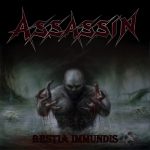
Blessed Altar Zine: Bestia Immundis is Assassin’s sixth full-length record. How do you feel it stands out from past efforts?
Jürgen “Scholli” Scholz: Before and while writing new songs for Bestia Immundis, a lot of bad things happened and that [stirred] up a lot of emotions. There was a lot of hate and aggression, which made me able to write seven songs on this album. So the songs are very aggressive. And they are also influenced a little bit more from old punk style of the 1970s and 80s, because I like that stuff. And also more atmospheric and darker components are on this album, because that’s what I like as a contrast.
Bassist Joachim Kremer wrote the other four songs. He also has a lot of emotions in his songs but they are of another kind. Because of that, the new album included a little bit more styles and as a result it is more varied. Two songs are faster than any we’d done before, other songs are a little bit darker, atmospheric or more punk-influenced. For me it is the most diversified album of Assassin, but still in the frame of speed-thrash metal as ever!
Assassin is known for pulling no punches and “The Wall” is clearly reactive to U.S. immigration policies (in addition to other xenophobic policies worldwide). Why does xenophobia affect you so much?
Ingo Bajonczak: I would not only call it xenophobia — for me it is more all about the money! If Mexico was a rich country and would on any matter bring economical advantage to the Trump [administration], America wouldn’t even try to build that wall for sure! But their course is to spread and provide fear among their citizens because that is the way you can rule and control society the easiest way! Unbelievably, Mr.Trump shows up another dimension of political treatment by simply ignoring or negating any kind of critics and doubts. What stuns me …[is] he gets away with it. He doesn’t even pretend to be diplomatic – whether you are with or against him. This man makes America and the western world hate again!
I feel as though “Hell’s Work Is Done” tells of the consequences of the antagonist’s actions in “The Wall.” Would you say that is accurate, or is that song a general cautionary tale for the listener?
IB: Intentionally, I wrote it as a general caution – the vicious lyrics should match the aggressive, evil atmosphere of the song first. But of course the listeners are free to interpret — and therefore it also can be seen that way.
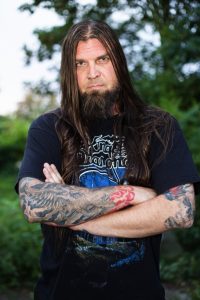
“Chemtrails” delves into the idea that the general population is intentionally being poisoned through the air. While there is some evidence, it is not widely accepted but it is also not dismissed. Do you believe that the idea of Chemtrails is more than a theory? Why did you feel it important to write about this topic?
IB: The title was meant to headline a more ironic way of dealing with all the suspicious and conspiracy theories within the multimedias nowadays. Tragically, it is very up-to-date at the moment as we all suffer during the covid19-period.
It never dealt with a serious opinion on such a theme! To be honest, I believe that “chemtrails” are completely bullshit, I mean, who would start to poison anyone everywhere all over the globe and for what purpose? The song is more an allusion to those rhetorical terms and the consequences they left in human psyche — create a conspirative idea, name it — and there you have a case! People unconsciously want to place an enemy as a scapegoat for their failures — so it is easier not to change themselves, and for that, others are to blame. A wise man once said: ‘Intelligent minds search for solutions to their problems and issues. The simple minds only search the ones to blame for it.’
On which songs do you feel you took the biggest risks?
IB: We didn’t take any risk at all, I would say, no matter if you mean it musically or lyrically. For we are very confident to have created another strong statement in thrash metal and show the metal world ASSASSIN is still evident, relevant and on the map.
What are the challenges in finding new inspiration or breaking new ground in thrash metal?
JS: We got no challenges in this way. We want to do thrash metal, as we live for it. Every Assassin member’s life shapes and forms us and our style of music.
Bjorn’s drumming is phenomenal. How does his input influence the songwriting and composition?
JS: Yes of course, he is a great drummer and also a good producer. Björn “Burn” Sondermann and I changed a lot of parts and did a new arrangement on some songs which were good at first, but not the best as they could be. Without his work as a musician and as a producer this album would not be the same as it is now.

I love the gang vocals in thrash and Assassin excels at it. How do you know when a song or lyric will lend itself to group participation?
JS: When I write the songs I always have the inspirations in which way the songs will sound at the end and the vocal lines should be. I did not write the lyrics but I always put a big weighting in the melodies and gang-shouts of the vocals to set accents on the songs.
Ingo is not Assassin’s first singer, but has been embraced by your fanbase. How did the positive reaction to his style and to 2016’s Combat Cathedral re-energize the band?
JS: Ingo is a very good singer and his lyrics are also very good and meaningful with important and interesting themes.
Ingo sings the old Assassin songs in his way but near the original vocal-lines. A lot of people like it and some old school fans do not like it. That’s normal. On the last two albums his singing pushed the songs to the top and made the albums to what they are — two very good Assassin albums and most of the thrashers around the world like them.
Blessed Altar Zine was founded to support underground artists. What was your (or the band’s) experience as a local or underground musician in Germany? What steps did you take correctly and what lessons did you have to learn the hard way?
JS: Very good questions! In shortest form: In the 1980s, life and living music as a young musician was very easy and great. Everything was possible. The only thing was: Do it!
Today it is the worst situation to be a local or underground band. Nearly no chance to rise up. There are a lot of good bands, but the music scene in every style is overloaded and saturated with music of all kinds. Because of that, musicians and bands which are very good but have no big promotion company [backing them] and have nearly no chance today. I don’t like this, but that is today’s reality. By Justin Smulison
Band
Website
Facebook
Twitter
Youtube
Spotify
**Please support the underground! It’s vital to the future of our genre.
#WeAreBlessedAltarZine
#TheZineSupportingTheUnderground

